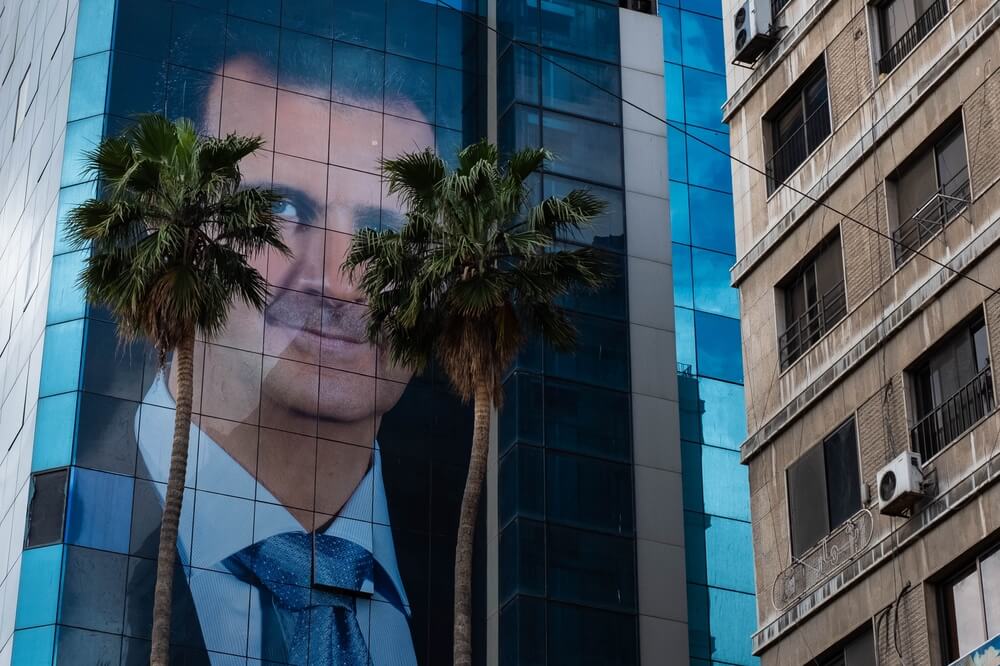Russia is on the verge of another foreign policy disaster, providing further confirmation that it is far from the status of a global power.
With the Kremlin's support, the nation will find a way to continue its self-delusion about its own greatness and influence on the global stage, but its failures around the world will demonstrate otherwise.
This time, Russian influence in Venezuela, practically its only ally in Latin America, is on the verge of collapse.
As the authoritarian regime of Nicolás Maduro edges closer to some form of American intervention, Moscow has been forced to admit that it has neither the capacity nor the will to assist its friend.
The Kremlin simply remained silent regarding Nicolás Maduro's letter, in which he requested Russian help to strengthen the air defence system and overhaul Sukhoi fighter jets at the end of October.
The letter from Caracas certainly arrived late in Moscow, considering that American forces had already been significantly reinforced in the area around Venezuela in anticipation of the battle group centred on the largest and most modern aircraft carrier, the USS Gerald R. Ford, which had meanwhile arrived from the Mediterranean.
Neither Vladimir Putin nor any of his key associates responded with encouragement to Maduro, apart from Foreign Minister Sergey Lavrov's routine verbal protests against the build-up of US troops in the waters around Venezuela.
Spent capacity for global influence
This time, the situation differed from 2019, when Maduro was under strong, but not military, pressure from the US due to stolen elections.
Moscow responded to a similar request from the Venezuelan authoritarian by sending about a hundred military advisers to Caracas, who worked on anti-aircraft systems and the overhaul of Sukhoi 30 aircraft and Russian helicopters.
The invasion of Ukraine triggered a series of foreign policy disasters for Moscow
Six years ago, Russia had the capacity to provide tangible support to its partner in Venezuela. It was confident after the annexation of the Ukrainian peninsula of Crimea, and although exposed to Western sanctions as a result, its military and foreign policy apparatus still gave Russians confidence in their significant global role.
However, the invasion of Ukraine triggered a series of foreign policy disasters for Moscow, reducing its influence in the world to a more realistic level, which is far from the superpower status that its predecessor, the Soviet Union, held until almost four decades ago.
Departure of allies
Excluding Ukraine, which, in defending its sovereignty, entered into open conflict with Russia, the first and most painful blows came from Russia’s closest allies.
Armenia, a former Soviet republic, has withdrawn from the Russian-led security alliance, the Collective Security Treaty Organization (CSTO), recognising that it cannot expect protection from its major partner in its conflict with Azerbaijan.
“As a result of the events in Ukraine, the capabilities of Russia have changed,” said Armenian Prime Minister Nikol Pashinyan in 2023, after his army was defeated by Azerbaijani forces in the conflict over the disputed territory of Karabakh.
The collapse of the Bashar al-Assad regime politically nullified Russian influence in the Middle East
Another close ally, Syria, which had been Russia’s strategic partner in the Middle East for decades, experienced a similar outcome.
The collapse of the Bashar al-Assad regime a year ago not only politically nullified Russian influence in the Middle East but also led to the physical withdrawal of Russian troops from Syrian bases in the Mediterranean.
What followed was perhaps Moscow’s most difficult admission of its inability to assist its allies in need, when, just as in the case of Maduro’s appeal for help, it ignored Tehran’s requests for assistance during the Israeli attacks in June of this year.
Will Maduro go into exile in Moscow?
The Venezuelan autocrat has either not learned any lessons from Russia's previous series of severe foreign policy defeats or has simply been blinded by Moscow's earlier assurances that it would come to the rescue if necessary.
 If speculation that the aim of the American grouping around Venezuela is to overthrow Maduro proves correct, Russia will likely play the same role as it did with Assad
If speculation that the aim of the American grouping around Venezuela is to overthrow Maduro proves correct, Russia will likely play the same role as it did with Assad
The crisis of the Maduro regime, which may well prove to be its last due to its impending collapse, confirms once again that Russia lacks the strength or resources to exert influence where it once did in the not-so-distant past.
Its invasion of Ukraine demonstrated that it is geopolitically overstretched and cannot provide support for its favoured regimes, which are prone to collapse.
Russia is now de facto uninterested in intervening in distant regions, not even diplomatically, let alone militarily. This applies even to allies on whom the supply of weapons necessary for operations in Ukraine directly depends, such as Iran.
If speculation that the aim of the American grouping around Venezuela is to overthrow Maduro proves correct, Russia will likely play the same role as it did with Assad.
It took him into exile, citing "humanitarian reasons", which could be the same scenario for Maduro's eventual extraction. Today, offering hospitality to worn-out and deposed autocrats is the most Moscow can do to present itself as a global player.